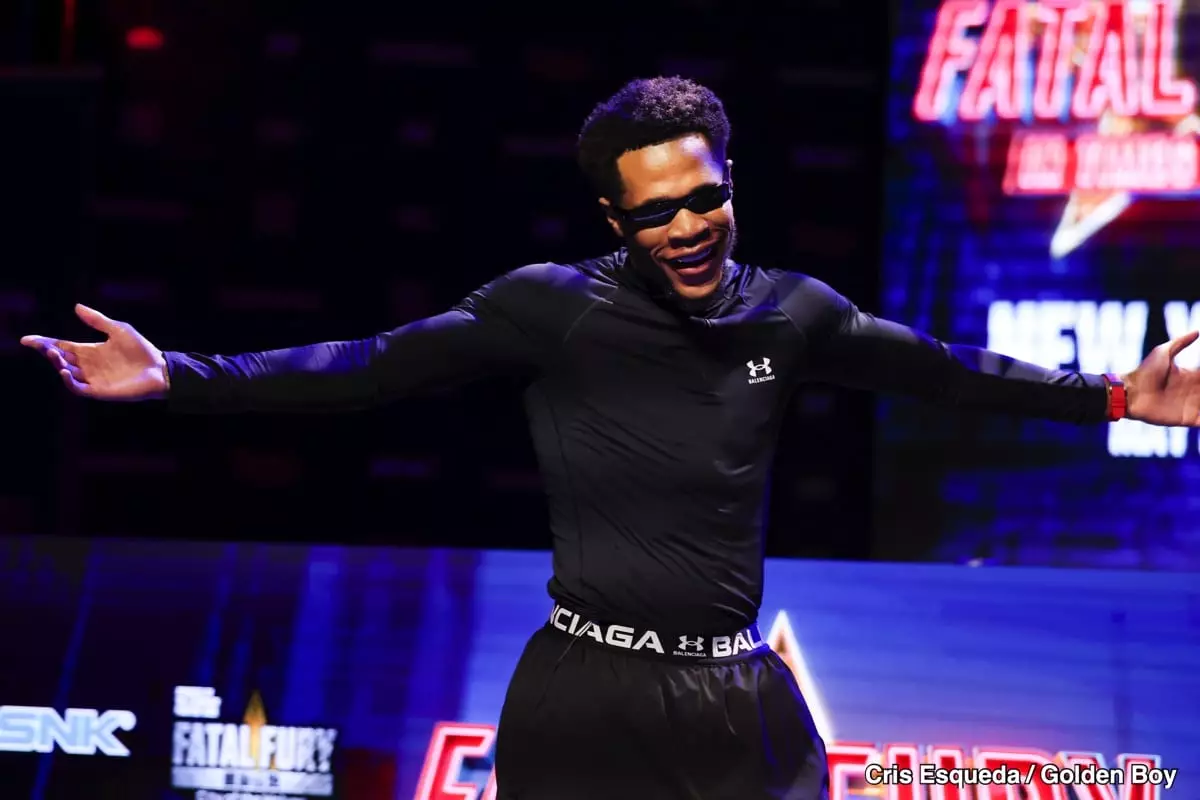In the hyper-competitive world of professional boxing, public perception can make or break a fighter’s legacy. A recent incident involving Bill Haney, father of former two-division world champion Devin Haney, and press conference monitor Todd Grisham highlights the fragility of this perception. The confrontation, steeped in emotion, raises questions about the role of the media, the expectations faced by athletes, and the complexities of public relations within the sport. It is a clash not just of words but of beliefs, values, and the narratives that shape the boxing landscape.
The core of the matter lies in Bill Haney’s indignation at Grisham’s questioning technique during a press conference leading up to Devin Haney’s match against Jose Ramirez. Haney felt that Grisham’s inquiries, particularly regarding his son’s chin—a metaphor for his resilience in the ring—were dismissive and disrespectful. The pointed question about whether Ramirez would test Haney’s chin after a previous loss to Ryan Garcia served as a catalyst for Bill’s frustration. Was this merely an innocent question, or did it represent a deeper scrutiny, reflecting the boxing world’s unforgiving nature?
Defending a Legacy
Bill Haney’s vehement defense of his son points to the significant pressures that fighters endure, both inside and outside the ring. Fighters like Devin Haney, who hold titles and accolades yet face skepticism from the media and fans, walk a precarious line between respect and disdain. It is essential to appreciate that their careers are often defined by single events; for Devin, his fight against Ryan Garcia looms large, overshadowing his achievements.
This dynamic plays into a larger narrative in boxing, where the consequences of a loss can be devastating. A championship title does not automatically translate to unwavering fan support. As Bill Haney articulated during the exchange, the audience’s composition—predominantly Hispanic, favoring Garcia—added another layer of complexity to this narrative battle. The notion that boxing inherently pits fighters and their supporters against one another isn’t new, but it is increasingly evident in a social media age where opinions can shift like sand.
The Role of the Media
Grisham found himself in a challenging position, navigating the thin line between journalistic integrity and the expectations of promoters, pugilists, and fans alike. His attempt to engage with Ramirez while probing Haney’s vulnerabilities speaks to a common media tactic: creating tension to grab headlines. However, this approach can backfire, especially when those involved feel that their reputations or legacies are at stake.
Discussions surrounding athlete personas often gloss over the emotional toll they take; both fighters and their families invest heavily in their reputations. For Bill Haney, his son’s legacy as the “youngest undisputed champion” is vital, yet the weight of defeats can linger like a ghost, haunting future bouts and blurring public perception. His anger towards Grisham reflects not just frustration at media questioning but an emotional plea for [recognition of his son’s journey](https://www.boxingnews24.com/2023/05/haney-perfectly-positioned-to-reclaim-his-glory/).
The Personal Stakes
As fans dissect fighters based on their performance, personal stakes rise exponentially. Bill Haney’s immediate fierce response to Grisham’s line of questioning serves as a metaphor for the broader struggles that many athletes face. It is not merely a sport; it is a way of life that demands respect, acknowledgment, and understanding of the sacrifices made to achieve success.
In combat sports, where often a split-second decision can alter the trajectory of a career, the narratives created by interviews, press conferences, and media interactions are consequential. The perception of a fighter can shift overnight, and for Devin Haney, a legacy once built on resilience and success now battles the weight of public doubt.
Thus, the incident compellingly showcases the intricate dance between the media’s responsibility to report and the families of fighters seeking to protect and celebrate their achievements. Conversations about perception, media tactics, and emotional well-being will become increasingly relevant in the sport, as boxing continues to evolve in the eyes of the public. The question remains: how will these dynamic relationships redefine the future of boxing narratives?

